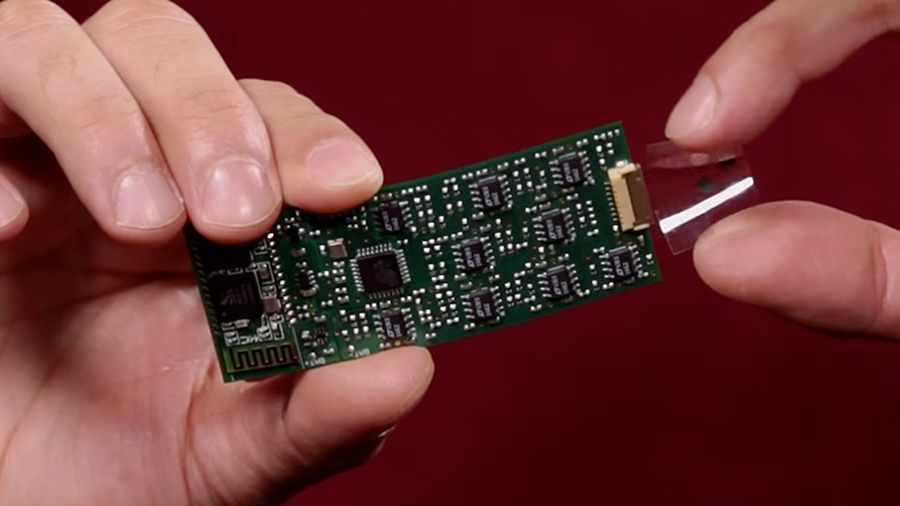A new wearable sensor can detect dehydration and fatigue

Counting steps is just the start: researchers are coming up with sensors that are smaller, more intelligent and less expensive all the time, and these innovations will eventually filter down to the wearables we have on our wrists and around our ankles.
A new sensor developed by engineers at the University of California, Berkeley, can measure the metabolites and electrolytes in sweat. By combining the readings with skin temperature data, the sensor can alert the user to fatigue, dehydration and dangerously high body temperatures.
So your next fitness tracker might be able to warn you when you're overdoing it as well as counting how many laps you've done of the local park - although it's going to be a while before this technology makes it into consumer products that you can actually go out and buy.
The science of sweat
Your sweat reveals more about you thank you might think, and scientists are hopeful that a wearable based on this new technology could replace a blood test in some situations - no needles and no trip to the doctor's required.
There are more than 10 integrated circuit chips on the prototype wearable designed by the academics, and a team of volunteers were put through various indoor and outdoor exercises to test its effectiveness. All the data collected by a wristband or a headband can be fed back to a smartphone just like the wearables of today.
"Human sweat contains physiologically rich information, thus making it an attractive body fluid for non-invasive wearable sensors," says principal investigator Professor Ali Javey. "However, sweat is complex and it is necessary to measure multiple targets to extract meaningful information about your state of health."
- Read our review of the wearable that can fix your posture
Sign up for breaking news, reviews, opinion, top tech deals, and more.

Dave is a freelance tech journalist who has been writing about gadgets, apps and the web for more than two decades. Based out of Stockport, England, on TechRadar you'll find him covering news, features and reviews, particularly for phones, tablets and wearables. Working to ensure our breaking news coverage is the best in the business over weekends, David also has bylines at Gizmodo, T3, PopSci and a few other places besides, as well as being many years editing the likes of PC Explorer and The Hardware Handbook.